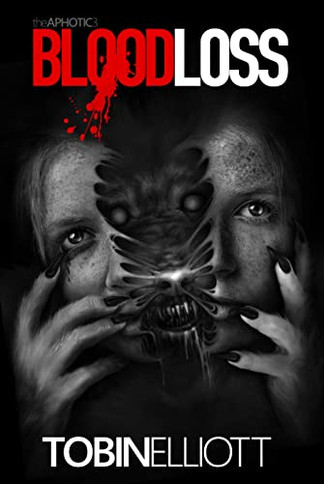Confidence to Write: How do I get confidence to write? Notes from Tobin Elliott
- Tobin Elliott

- Jan 24, 2023
- 4 min read
"We don't see things as they are, we see them as we are."
– Anais Nin
When asked if I had a topic for this guest blog, I immediately thought back to several conversations I’d recently had with different writers, all at very different levels of writing experience. And when I thought it through, every single conversation came down to confidence.
In one case, a writer who, in their own words, has “a bunch of novels, and hundreds of short stories” and, despite winning awards for their writing, has never considered publishing them. Why? “I don’t have any confidence in any of it.”
A second writer told me that they were “really pumped” to start digging into their novel. They mentioned that they talked to a friend about one of the aspects of the story, and that “friend”—and yes, I’ll purposely put quotes around that—was dismissive. This same writer had, weeks earlier, posted a fantastic quote on social media, only to have another friend rip it to shreds. In both cases, it served to deflate the writer and leave them questioning their abilities.
A third writer, who has ghost written multiple books but is now focusing on their own ideas, regularly expresses concerns that the story isn’t “good enough” or, worse yet, that they are “not good enough a writer to do it justice.”
So, a range of experience levels and confidence levels, from zero, to very little, to a somewhat fragile high level.

PIGENIUS CAVE, TRANSGRESSIVE, Kühlhaus Berlin, Sep 2022 ©BENJAKON (source)
"Successful people have fear, successful people have doubts, and successful people have worries. They just don't let these feelings stop them."
– T. Harv Eker
I think that many authors don’t consider what they do as art. But it is art, as surely as drawing or sculpting or creating music is art. And the thing to remember with art? We all do it differently. We all have our own styles, our own subjects and themes we return to again and again, we all have our preferred genres, and definitely our own ways of arranging those twenty-six letters and punctuation marks to say what we want to say.
It’s subjective as hell. Some are going to love what you do, some are going to hate it.
And I think this is where the confidence angle comes in. We look at some other admired author and we want to be—if not just like them—then at least as good as them. And we want a big audience to love what we do.
I have had a few interesting experiences that have changed my confidence level.
At one reading of my work, I had two people stand up and run out of the room.
A few weeks ago, I had a family member tell me she put down my novel less than halfway through, and would not be reading anything else of mine, because, she said, “I can only tolerate so much of your madness.”
And, about a week ago, I had a reviewer message me. They’d just gotten to a certain part in my novel and said they couldn’t read any further, and they apologized.
In all three cases, perhaps I should have been upset, or worried, or lost confidence in my writing. However, I didn’t. Instead, I took all three as compliments.
I’m a horror writer. I horrified all four of those people enough that they couldn’t continue.
I won.
Here’s my advice to any writer suffering a crisis of confidence…
Be confident of your progress
When I used to teach Creative Writing, I would take a good look at all the students, wondering who would be in the one-half to two-thirds that would discover how much work writing is and abandon the course.
So, if you’ve managed to actually complete some work, it may or may not be good. But, the big thing to realize here is, you’ve already accomplished more than most writers. That’s something to celebrate. But now, you’ll have to find a way to get some unbiased, brutal feedback on them if you want to continue growing as an author. But you’ve written…and completed a tale. Have confidence in that.
Be confident of your talent
You may be at a stage where you have a fantastic idea, but you’re not sure you have the requisite skill and ability to write it. I think we all go through that at one point or another. Read stories and novels that cover similar ground to see what works and what doesn’t. Read good and bad stuff and learn from it.
But remember, this is your idea. No one else’s. Only you can write it. Oh, and by the way, remember that Hemingway said, “The first draft of anything is shit.” Give yourself permission to write bad stuff, because you can always fix it with the rewrites.
"Don't be distracted by criticism. Remember—the only taste of success some people have is when they take a bite out of you."
– Zig Ziglar
Be confident of your method
You may be pumped about writing! Yay you! Be warned that there’s always someone out there ready to tell you you’re doing it wrong. There’s always someone who—yes, I believe this—lacks confidence in their own work, and instead of working on that, they’d rather bring others down to their level of insecurity. I’ve seen it too many times to not believe this is true.
Avoid these confidence vampires at all costs, or, at the very least, don’t buy what they’re selling you, because you know better. You are pumped about it. Don’t lose that energy. Just get your butt in a chair and get words down. That’s all the validation you need.
Writing a compelling story—creating art—isn’t for the faint of heart. You’re taking a large piece of yourself and committing it to paper, then sending it out for all the world to see. That takes some confidence.
When some of your readers find what you’ve created is not their cup of tea, that’s fine. It’s art. You should write to please yourself first. Not everyone else will love it.
But some will. Some will be seeking out that exact thing—that incredible piece—that you have shared of yourself, and the words will resonate with them, and reach down into their soul.
And once you know you can make that connection, you will have the confidence to continue doing what you should be doing.
“What would you attempt to do if you knew you would not fail?”
– Robert Schuller
More about Tobin Elliott















Comments